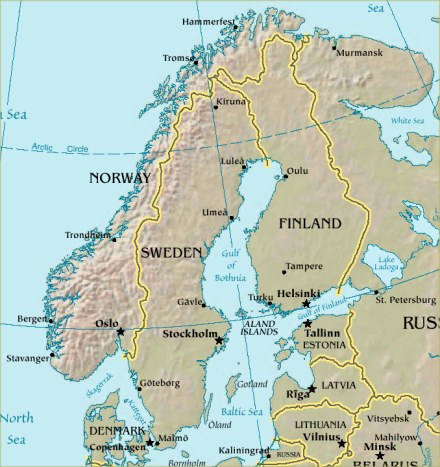This season’s election results have continued to unveil an America that’s as divided as ever. Conflict between young versus old, urban versus rural and native versus foreign have proved some of the dominant forces in this election, but that’s nothing new. Most unique about 2016 has been the rise of a pair of importers who have brought the latest European fashions to our shores for the spring season.
Like tight pants or the man purse, right-wing nationalism was a trend that was thought to remain firmly planted across the pond. Among others, France’s National Front, the UK Independence Party and Netherlands’ Party for Freedom have gained footholds appealing to anti-immigrant populist sentiment. Faster than you can say “Mind the gap,” Donald Trump has found their niche appeal transferrable to our shores. In that sense, what he is really achieving is to “make America European again.”
Hoping to decorate the White House with Ikea furniture, Bernie Sanders has pushed for Scandinavian-style democratic socialism. Unlike Trump, Sanders has stood as one of the most liberal politicians in the country for decades, proposing policies mirroring northern Europe’s. Until last year, he was mostly ignored, like a tray of lutefisk at the far left end of a buffet.
What makes the impact of these two so surprising is not that their ideas are new. Anti-immigrant or even racist sentiment has always been present, as has left-wing activism. What is different is how these candidates have played a different strategy in our American winner-take-all system. Many of Europe’s parliamentary systems allow three or more parties to hold seats and distinguish among one another. Meanwhile, America’s “first-past-the-post” election system incentivizes politicians to avoid offending people above all else in order to attract the median voter.
Sanders and Trump have found success by staking their claims at a point on the political spectrum and drawing support from the edges, rather than from the middle. This is why they have stood out with such stark contrast against polished “establishment” politicians. There is a reason why this is uncommon and feels to some like a breath of fresh air.
In the American election system, doing anything but catering to the average voter is a risky strategy. Both Sanders and Trump have maintained success in the primaries and exceeded expectations by strategically targeting portions of the political spectrum that had not previously been catered to. Having alienated the middle, to carry their successes into a general election that represents a broader cross-section of America would be unprecedented.
A decade ago, Europe looked on in horror at George W. Bush’s Texan drawl and overt Christianity. If either Trump or Sanders were in the Oval Office, few would bat an eye, having grown accustomed to both nationalistic and democratic socialist options. However, America’s national identity was founded primarily not on a common ethnicity, but on constitutional principles.
Many countries in Europe live in the shadow of historical fascism or communism while maintaining some sort of ethnic pride in their identities. The United States has had lamentable moments in its history, to be sure, but at least maintained a functioning government for more than two centuries. Perhaps taking for granted the stability of moderation, many Americans have grown frustrated. As disenchanted Americans make their point in two very different directions, some Europeans may twirl their baguettes with glee. But politics is the last thing that America should import from Europe.
Daniel Galitsky is a senior economics and finance major. He can be reached at dgalitskydbk@gmail.com.



